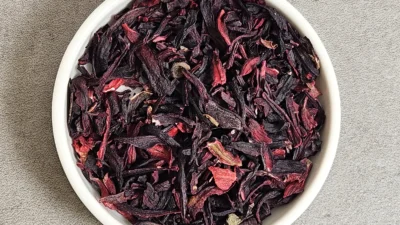Centaurea, also known as Blessed Thistle or Virgin’s Tree, is a well-known plant in traditional medicine and has been used since ancient times to treat a variety of illnesses.
It is recognized for its multiple medicinal properties, making it an important subject for study and use in alternative medicine.
Overview of Centaurea
Centaurea is a perennial plant belonging to the thistle family. It is especially widespread in the Mediterranean region, including Southern Europe, North Africa, and Western Asia.
The plant is known for its bright flowers and sharp thorns and has been used in traditional medicine for centuries to treat various ailments.
Active Compounds in Centaurea
- Silymarin:
An antioxidant compound known for its ability to protect the liver. - Flavonoids:
Antioxidant compounds that help reduce inflammation and enhance overall health. - Organic acids:
Such as caffeic acid and linoleic acid, which play a role in combating inflammation.
Health Benefits of Centaurea
Liver Health Support
Centaurea is well-known for its ability to improve liver function.
Its extract is used in treating liver diseases such as hepatitis and cirrhosis.
Silymarin helps regenerate damaged liver cells and promotes bile production, improving digestion.
Improved Digestion
Centaurea stimulates bile secretion, which enhances digestion and reduces digestive issues like bloating and gas.
Drinking Centaurea tea after meals can aid digestion.
Anti-inflammatory Properties
Centaurea contains compounds that help reduce inflammation in the body.
It can be used topically to treat skin inflammation and wounds or taken as a supplement to reduce internal inflammation.
Antioxidant Effects
The antioxidants in Centaurea protect cells from damage caused by free radicals.
This can help prevent chronic diseases such as heart disease and cancer.
Antibacterial and Antifungal
Centaurea exhibits antibacterial and antifungal properties, making it useful in treating skin and digestive tract infections.
How to Use Centaurea
Tea
Centaurea tea can be prepared by steeping the leaves or roots in boiling water.
It’s recommended to drink one cup after meals to enhance digestion and support liver health.
Extracts
Centaurea extracts are available in liquid or capsule form.
Always follow package instructions or consult a healthcare provider for the correct dosage.
Topical Use
Centaurea oil can be applied to treat wounds and skin inflammations.
Apply a few drops to the affected area twice daily.
Key Skin Benefits of Centaurea
Acne and Blemish Control
Thanks to its antibacterial and antifungal properties, Centaurea helps combat infections that cause acne and blemishes.
Topical application of its extracts can reduce skin issues.
Soothing Skin Inflammation
Its anti-inflammatory compounds make it useful for calming skin irritation and itching.
Centaurea oil or creams with its extract can reduce redness and discomfort.
Wound Healing Acceleration
Due to its antibacterial and anti-inflammatory effects, Centaurea helps wounds and ulcers heal faster.
Apply Centaurea oil on small wounds to promote healing and prevent infection.
Improving Skin Elasticity
The antioxidants in Centaurea help combat free radicals that contribute to skin damage and aging.
Products with its extract may improve skin elasticity and reduce wrinkles.
Moisturizing and Nourishing Skin
Centaurea contains compounds that nourish and keep the skin moisturized.
Creams and lotions with its extracts are effective for treating dry skin and enhancing overall appearance.
How to Use Centaurea for Skincare
Essential Oil
Centaurea oil can be applied directly to the skin but should be diluted with a carrier oil like coconut or olive oil.
Creams and Skincare Products
Using creams or products with Centaurea extracts is an effective way to benefit from its skin-enhancing properties.
Precautions and Warnings
Pregnancy and Breastfeeding
Centaurea should be avoided during pregnancy and breastfeeding unless advised by a doctor.
Allergies
It may cause allergic reactions in some individuals.
People allergic to thistle-family plants should avoid Centaurea.
Allergy Test
Before applying to the skin, perform a patch test by applying a small amount on a small area and waiting 24 hours for any reaction.
Drug Interactions
Centaurea may interact with certain medications, including blood thinners and diabetes drugs.
Consult your doctor if you are on medication.
Conclusion
Centaurea is a plant with multiple health benefits that can be a valuable addition to your wellness routine.
Whether used for liver support, digestion, or inflammation, it should be used carefully and under medical advice for safety and effectiveness.
Consulting your doctor and following the recommended dosages can help you use Centaurea to enhance your overall health.




